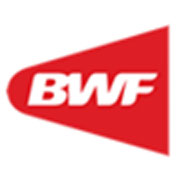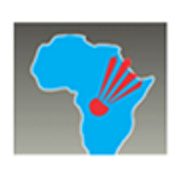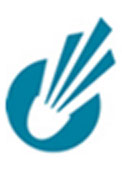Years of experience guarantee a different knowledge, but constant training empowers our coaches. A mixture of both is part of the life of Jose María Solis, coach of Guatemala, who also participated in the last Pilot Course for Coaches Level 3, held in our region.
“I think that the most relevant part of this course has been reflection. When you have experience, you try to incorporate new ideas, new concepts. In one way or another it is something that we have been working on, but not as it was seen in this course. Trying to induce the athlete to new forms of learning that you are not accustomed to is a challenge. The most important thing is that you are convinced that what you are seeing can bring benefit. We have a purpose, to work for the benefit of athlete. If the athlete improves, the badminton improves and that is growth for everyone. ”
Jose Maria, or ‘Chema’ as he is known, started in badminton at age 13, after practicing other sports and convincing himself that badminton would fill his life, until now. After his years as a player, he found a new direction as a coach, where he discovered his vocation to teach and share what he knows with coaches and young athletes.
 “I did other sports and considered badminton to be very easy but my mentality changed completely when I practiced it. I saw that it was a very demanding sport, which could help me a lot as a person, I was always very clear about that. Motivated by a coach, who invited me to take care of some children, I loved working with them, starting to teach something and helping them, I was fascinated. Then I decided to devote myself to training and that is what I have been doing for many years. ”
“I did other sports and considered badminton to be very easy but my mentality changed completely when I practiced it. I saw that it was a very demanding sport, which could help me a lot as a person, I was always very clear about that. Motivated by a coach, who invited me to take care of some children, I loved working with them, starting to teach something and helping them, I was fascinated. Then I decided to devote myself to training and that is what I have been doing for many years. ”
For many athletes, it is very natural to share their experiences in the game with other minor athletes, for the benefit of their sports growth. For others, the transition is complicated and they don’t adapt to leaving the courts. Chema lived a different transition, motivated to share what he knew and to learn even more to continue sharing with the other players.
 “I think that in my case (the transition) was simple because I started doing both at the same time. But I realized that doing all 3 things at once (athlete, coach and studying) was difficult, and I definitely had to choose for one thing, and I chose teaching, obeying the need to share and rediscover new things in my life through sport and teaching. ”
“I think that in my case (the transition) was simple because I started doing both at the same time. But I realized that doing all 3 things at once (athlete, coach and studying) was difficult, and I definitely had to choose for one thing, and I chose teaching, obeying the need to share and rediscover new things in my life through sport and teaching. ”
The level 3 coaches course challenged all attendees, and Solis also wishes to put into practice what he learned and share it with the coaches he has in charge.
“I work with the coaches at the national level in Guatemala. I have part of their development, of their training. Now I have to convey the idea of being able to introduce this way of inducing athletes to improve at all levels and the coaches are important part in this. They are the ones who are with the athlete every day and are the ones who are going to take care of this. ”
Chema sees training as something vital to continue improving, something totally relevant in the life of a coach to keep growing, and explains it as follows:
 “Training is essential. If there is a coach who thinks he does not need to continue training, he is definitely in the wrong place. We never stop learning in any area of life. Learning must go hand in hand with us. And the most important thing is to have that open mind, where you not only learn from the exhibitors, but also from the classmates, who share their experiences. I not only take notes in my notebook of what the exhibitors said, but also of what my colleagues said.”
“Training is essential. If there is a coach who thinks he does not need to continue training, he is definitely in the wrong place. We never stop learning in any area of life. Learning must go hand in hand with us. And the most important thing is to have that open mind, where you not only learn from the exhibitors, but also from the classmates, who share their experiences. I not only take notes in my notebook of what the exhibitors said, but also of what my colleagues said.”
As an experienced coach with several achievements, Jose Maria yearns for the badminton to continue growing, not only in Guatemala but throughout the region. His biggest dream responds to it.
“My dream is to continue seeing, not only a Guatemalan in the badminton worldwide, but to see a Peruvian, a Mexican, an Argentine, a Venezuelan, a Colombian, etc., that our badminton grows, that it decentralizes and that , definitely, the entities that can help us to continue working this shake hands with us, because help is needed. This is a team work and the Badminton Pan American Confederation is supporting us and that is something that has to be valued and exploited . “







